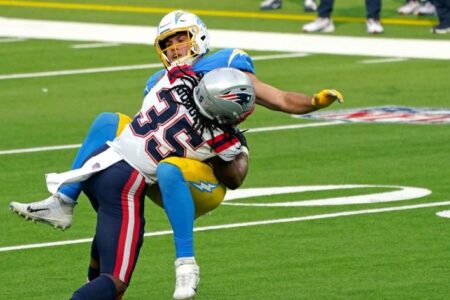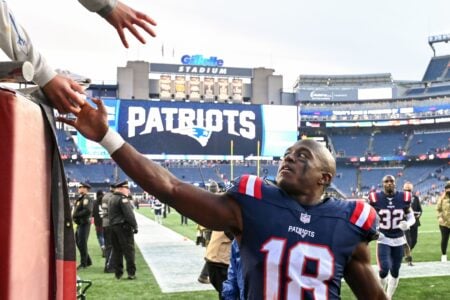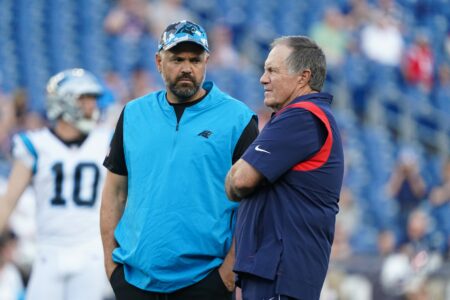Metaphors
In the Starting Line-Up
- Joined
- Oct 10, 2005
- Messages
- 3,670
- Reaction score
- 0
The Welker situation has given rise to a lot of conflicting information...but I have a fairly fundamental question. Can a team (Miami in this case) trade an RFA without his explicit consent? From the NFLPA site:
"Restricted Free Agent – A player whose contract expires when he has three Accrued Seasons (but less than four) is in this category in a capped year. If his old club provides him with a sufficient “Qualifying Offer” on or before March 1, 2007, it retains the right to either match an offer the player may get from another club or to receive draft choice compensation from the club making the offer. The Qualifying Offer is based on the level of draft choices the old club wants to receive. For Example, the Qualifying Offer to receive a first and third rounder in 2006 was $2,096,600. The Restricted Free Agent only has about a week before the draft (April 28 - 29 in 2007) to generate an offer from another club. If he fails to get an offer, his exclusive rights revert to the old club unless the Qualifying Offer is withdrawn."
Sounds like the only right Miami has during the RFA period is to match or not match an offer from another club. I don't see anything that gives Miami the ability to trade the rights to Welker since they didn't actually own the rights to Welker (see the use of the phrase "revert to the old club" and not "remain with the old club").
Some people have mentioned that you can trade the right of first refusal for Welker to another team...meaning the new team would then have to match/not match offers for Welker. This doesn't make any sense to me, I can't recall it ever happening and it is decidedly anti-player. For example, Miami knows that New England and Tennessee want to make offers for Welker, but he prefers New England. Miami could trade his ROFR to Tennessee for a 2nd round pick and ensure that he is out of the division. Welker would get the same money but his ability to choose where he wants to play would be compromised.
Anyway, if Welker couldn't have been traded by Miami unless he explicit signed off on the deal, it would be difficult for New England to subvert the system. If anyone knows for sure, I would appreciate clarification.
"Restricted Free Agent – A player whose contract expires when he has three Accrued Seasons (but less than four) is in this category in a capped year. If his old club provides him with a sufficient “Qualifying Offer” on or before March 1, 2007, it retains the right to either match an offer the player may get from another club or to receive draft choice compensation from the club making the offer. The Qualifying Offer is based on the level of draft choices the old club wants to receive. For Example, the Qualifying Offer to receive a first and third rounder in 2006 was $2,096,600. The Restricted Free Agent only has about a week before the draft (April 28 - 29 in 2007) to generate an offer from another club. If he fails to get an offer, his exclusive rights revert to the old club unless the Qualifying Offer is withdrawn."
Sounds like the only right Miami has during the RFA period is to match or not match an offer from another club. I don't see anything that gives Miami the ability to trade the rights to Welker since they didn't actually own the rights to Welker (see the use of the phrase "revert to the old club" and not "remain with the old club").
Some people have mentioned that you can trade the right of first refusal for Welker to another team...meaning the new team would then have to match/not match offers for Welker. This doesn't make any sense to me, I can't recall it ever happening and it is decidedly anti-player. For example, Miami knows that New England and Tennessee want to make offers for Welker, but he prefers New England. Miami could trade his ROFR to Tennessee for a 2nd round pick and ensure that he is out of the division. Welker would get the same money but his ability to choose where he wants to play would be compromised.
Anyway, if Welker couldn't have been traded by Miami unless he explicit signed off on the deal, it would be difficult for New England to subvert the system. If anyone knows for sure, I would appreciate clarification.



















